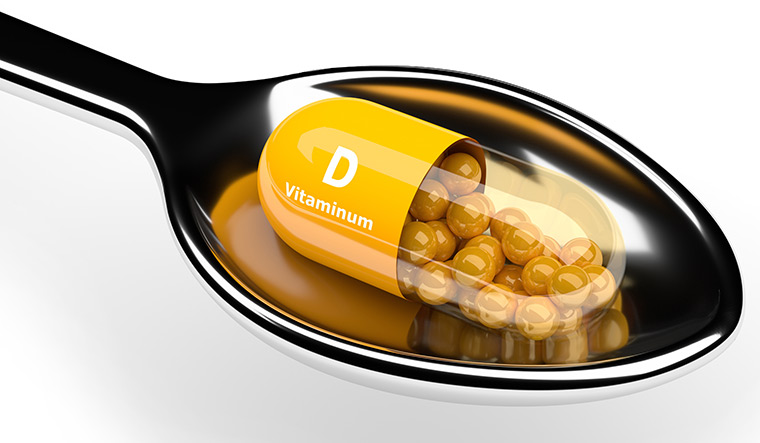ADHERING TO SIX healthy lifestyle factors, especially a healthy diet, is associated with a slower rate of memory decline and risk of dementia. The protective effects were even seen in people who had the apolipoprotein E (APOE) gene, which is the strongest known risk factor for Alzheimer’s disease, finds a study published in The BMJ.
To explore the effect of a healthy lifestyle on memory in later life, the researchers used data from 29,072 adults over 60 years of age with normal cognitive function who were part of the China Cognition and Aging Study―49 per cent of the participants were women.
Memory function was measured at the start of the study and participants were also tested for the APOE gene―20 per cent were carriers of the gene. The participants were followed-up with periodic assessments over the following 10 years.
A healthy lifestyle score included six factors: healthy diet, regular exercise, active social contact (seeing friends and family at least twice a week), cognitive activity (writing, reading, playing games at least twice a week), non-smoking, and not drinking alcohol.
Based on their score, ranging from 0 to 6, participants were assigned to different lifestyle groups: favourable (4 to 6 healthy factors), average (2 to 3 healthy factors), or unfavourable (0 to 1 healthy factors) and into APOE carrier and non-carrier groups.
Each individual healthy behaviour was associated with a slower-than-average decline in memory. A healthy diet had the strongest effect on slowing memory decline, followed by cognitive activity and physical exercise.
People with 4 to 6 healthy behaviours and 2 to 3 healthy behaviours were almost 90 per cent and almost 30 per cent less likely to develop dementia or mild cognitive impairment compared to those with an unfavourable lifestyle. Even those with APOE genes who followed a healthy lifestyle had slower memory decline.
Pregnancy complications can increase cardiovascular disease risk

MAJOR PREGNANCY COMPLICATIONS, such as gestational hypertension, preeclampsia and preterm birth, can put women at risk for future cardiovascular diseases such as stroke and heart attack, according to two studies.
The first study presented at the American Stroke Association’s International Stroke Conference finds that women who had complicated pregnancies are more likely to suffer a stroke at an earlier age than women without such complications. The study was based on data from 1,30,764 women and included 2,85,545 births.
About 15 per cent of the women (19,442) had one adverse pregnancy outcome and about 3 per cent (3,639) had multiple adverse outcomes―7,006 women suffered a stroke.
The median age for a first stroke was 59 years for women without pregnancy complications compared to 55 years for women who had one complicated pregnancy and 51 years for women who had multiple complicated pregnancies. Women with two or more complicated pregnancies had double the risk for stroke before age 45.
The second study published in The BMJ finds that women who had complicated pregnancies have an increased risk of ischaemic heart disease up to 46 years. Ischemic heart disease, also called coronary heart disease, can lead to heart attack and cardiac arrest. The study included more than 2.1 million Swedish women with no history of heart disease who had given birth to a single live infant at an average age of 27. The participants were followed for an average of 25 years.
Heart disease was diagnosed in 83,881 of the women at an average age of 58. In the 10 years after delivery, relative rates of heart disease rose twofold in women with other hypertensive disorders of pregnancy; 1.7-fold in those with preterm delivery; 1.5-fold in women with preeclampsia; 1.3-fold in those with gestational diabetes and 1.1-fold in those who delivered a baby with low birthweight. Women who had multiple adverse pregnancy outcomes showed further increases in risk.
Ultra-processed foods linked to increased cancer risk and mortality

REGULAR CONSUMPTION of ultra-processed foods may increase the risk of developing and dying from a variety of cancers, especially ovarian cancer, according to a British study published in the journal eClinicalMedicine.
Ultra-processed foods like cookies, cereals and packaged meals are very convenient and relatively cheap. Consumption of these foods have increased dramatically worldwide. But these foods contain artificial additives and preservatives, and are generally high in salt, unhealthy fats and sugar. These foods have already been linked to a number of poor health outcomes including obesity, type 2 diabetes and cardiovascular disease.
The researchers used data from about 2,00,000 adults, average age 58 years. During a median follow-up of about 10 years, 15,921 people developed cancer and 4,009 died of cancer.
Higher consumption of ultra-processed foods was associated with a greater risk of developing overall cancer and specifically ovarian and brain cancers, as well as increased risk of dying from overall cancer and especially ovarian and breast cancers. Every 10 per cent increase in ultra-processed food in a person’s diet increases the overall risk of cancer by 2 per cent and ovarian cancer by 19 per cent. It also increased the overall risk of dying from cancer by 6 per cent, with a 16 per cent and 30 per cent increased risk of dying from breast cancer and ovarian cancer, respectively.
Single dose of a common antibiotic prevents maternal sepsis

PREGNANCY-RELATED INFECTIONS account for about 10 per cent of maternal deaths worldwide. Sepsis, a life-threatening complication of infections, is a major cause of maternal and newborn deaths, especially in low- and middle-income countries. A new study published in the New England Journal of Medicine finds that a single oral dose of the common antibiotic azithromycin can reduce the risk of postpartum sepsis or death by 33 per cent in women who deliver vaginally.
The study was conducted in India, Bangladesh, the Democratic Republic of the Congo, Guatemala, Kenya, Pakistan and Zambia―29,278 women planning to deliver vaginally were randomly assigned to receive either a single 2g dose of oral azithromycin or placebo during labour. Only 1.6 per cent of the women who received azithromycin developed sepsis or died within six weeks after delivery, compared to 2.4 per cent of those who received placebo.
Women who received azithromycin were also less likely to develop endometritis (infection of the lining of the womb), wound infections and other infections. They also had fewer hospital readmissions and unscheduled healthcare visits. Azithromycin, however, did not reduce the risk of stillbirth, newborn sepsis or newborn death.
Could yogurt be the answer for bad breath?
ACCORDING TO A STUDY published in the journal BMJ Open, eating fermented foods like yogurt could reduce bad breath. Halitosis, or bad breath, is mainly caused by volatile sulphuric compounds which are produced by mouth bacteria resulting from bacterial mixing and food debris linked to poor dental hygiene. Mouthwashes, chewing gum, teeth scaling, and tongue scraping are the common solutions used to combat bad breath.
Growing evidence suggests that probiotic bacteria may be an effective alternative. To find out, the researchers reviewed seven clinical trials, involving 278 people aged 19 to 70 years who took probiotic supplements like Lactobacillus salivarius, Lactobacillus reuteri, Streptococcus salivarius, and Weissella cibaria for 2 to 12 weeks.
OLP (Oral Lichen Planus) scores, which measures breath odour at various distances from the mouth, dropped significantly in those who took probiotics compared with those in the control group, irrespective of the length of the monitoring period. A similar result was observed for the levels of volatile sulphuric compounds detected, but the observed effects were relatively short-lived.
“Probiotics may inhibit the decomposition of amino acids and proteins by anaerobic bacteria in the mouth, so curbing the production of smelly by-products,” the researchers explained.
Did You Know?
Regular physical activity can significantly reduce depressive symptoms in teens and children
JAMA Pediatrics
Vitamin D may lower the risk of diabetes

VITAMIN D SUPPLEMENTS may reduce the risk of diabetes in millions of people with pre-diabetes. A person with pre-diabetes has blood sugar levels that are higher than normal, but not high enough for a diagnosis of type 2 diabetes. Observational studies have shown that people who have low levels of vitamin D in their blood are more likely to develop diabetes.
For the US study published in the Annals of Internal Medicine, researchers reviewed three clinical trials that compared the use of vitamin D supplements with placebo in 4,000 adults with pre-diabetes. During three years of follow-up, adults who received vitamin D supplements had a 15 per cent reduced risk of progressing to type 2 diabetes.
While 15 may appear to be relatively small, it has significant public health implications because there are about 400 million adults worldwide who have pre-diabetes. The study suggests that vitamin D supplementation could delay the development of type 2 diabetes in more than 10 million people.
Did You Know?
More than a quarter of people with diabetes worldwide have osteoporosis, underscoring the importance of prevention and treatment of osteoporosis in diabetic patients
BMC Endocrine Disorders
UV nail polish dryers and cancer risk

MANICURES WITH GEL nail polish are popular because they tend to last longer. But are they safe?
According to a US study published in the journal Nature Communications, the ultraviolet light-emitting devices commonly used in salons to dry gel nail polish can lead to cell death and cause cancer-causing mutations in human cells. The effect of these devices on human cells at the molecular and cellular levels had not been studied until now, the study co-author said.
The researchers decided to conduct the study after reading about a young beauty pageant contestant with a rare form of skin cancer on her finger. They also found a number of other reports in medical journals about people who get gel manicures frequently, like pageant contestants and aestheticians, getting very rare cancers in the fingers, suggesting that there could be a link.
Cells from mice as well as humans were exposed to these devices in a lab. Just one 20-minute exposure caused 20 to 30 per cent of exposed cells to die, while three consecutive 20-minute exposures caused 65 to 70 per cent of cell death. Exposure also caused mitochondrial and DNA damage in the remaining cells and resulted in mutations with patterns that can be observed in skin cancer in humans. “Our experimental results and the prior evidence strongly suggest that radiation emitted by UV nail polish dryers may cause cancers of the hand and that UV nail polish dryers, similar to tanning beds, may increase the risk of early-onset skin cancer,” the authors wrote.
Remove fallopian tubes to avoid ovarian cancer

OVARIAN CANCER is often diagnosed at advanced stages of the disease when survival rates are much lower. Women with genetic mutations such as BRCA1 and BRCA2 have an increased risk for ovarian cancer. Doctors currently recommend that women with these mutations have their ovaries and fallopian tubes removed once they are done having children.
The Ovarian Cancer Research Alliance, a leading research organisation, is now recommending all women who have finished having children, even those without a genetic mutation, to have their fallopian tubes removed if they are undergoing pelvic surgeries for benign conditions such as a hysterectomy, tubal ligation, cysts or endometriosis.
The new advice replaces the decades-old focus on symptom awareness and screening. Findings of an earlier clinical trial in the UK that followed more than 2,00,000 women showed that the current screening methods do not reduce the risk of mortality.
The new recommendations are based on increasing evidence that ovarian cancer mostly start in the fallopian tube and removing them can dramatically reduce the risk for later developing the disease, even for those without genetic risks of the disease. The recommendation suggests that average risk women do not have to have their ovaries removed as well. Keeping the ovaries in place can prevent surgical menopause but reduce the risk of developing ovarian cancer. Even after menopause, ovaries continue to produce hormones that are beneficial in reducing the risk of heart disease, osteoporosis and sexual dysfunction.
Did You Know?
Carrying excess weight around the waist in middle age can double the risk of physical frailty in older age which can increase the odds of falls, disability, hospitalisation, reduced quality of life and premature death
BMJ Open
Anti-inflammatory diets improve fertility
ANTI-INFLAMMATORY DIETS such as the Mediterranean diet are known for their health benefits. A new study published in the journal Nutrition suggests that it may also improve fertility and boost chances of couples trying to conceive.
The Mediterranean diet encourages eating foods such as vegetables, fruits, whole grains, extra virgin olive oil, legumes, beans, seeds and nuts, moderate amounts of fish, cheese and yogurt and limiting red and processed meats, added sugar and refined grains.
“Research shows inflammation can affect fertility for both men and women, affecting sperm quality, menstrual cycles, and implantation. So, in this study, we wanted to see how a diet that reduces inflammation―such as the Mediterranean diet―might improve fertility outcomes,” the study author said.
A review of evidence found that the diet’s anti-inflammatory properties increase conception chances by boosting fertility in men and women. It improved sperm quality in men and success rates of assisted reproductive measures, such as IVF. “Modifying your diet is a non-intrusive and affordable strategy that could potentially improve infertility and reduce the need for prolonged or intensive pharmacological or surgical interventions,” the study concluded.









